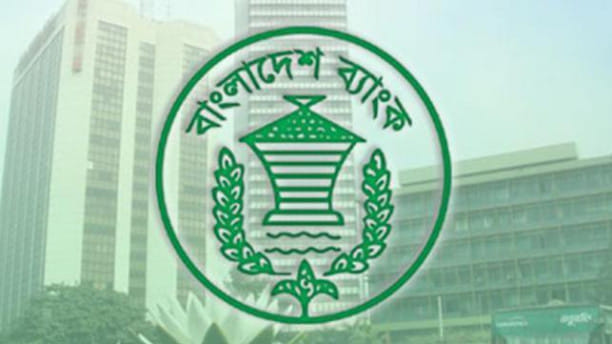Credit Card Transactions Abroad: BB revokes rules on prior approval

Bangladesh Bank yesterday walked back on its stance of forcing international credit cardholders to take prior approval from banks for every cross-border transaction, as better sense prevailed amongst the decision makers of the regulatory body of the country’s financial system.
The development will come as a huge relief to upwardly mobile Bangladeshis, whose day-to-day lives are progressively becoming intertwined with the rest of the world.
Amid severe criticism from different corners, the central bank higher-ups were forced to sit with officials of banks and payment companies, and leaders of the Bangladesh Association of Software and Information Services (BASIS) yesterday -- a day ahead of schedule.
The decision to backtrack was taken at the meeting and a notice was sent out to banks right away.
With the view to cracking down on online gambling and illicit fund transfers, BB on November 14 asked banks to get their customers to fill in the online transaction authorisation form (OTAF) for every foreign payment -- a cumbersome process in every sense.
Cardholders would have to submit a host of information via a mobile app including their name, card number, beneficiary name, amount of foreign currency and details of products and services to be purchased.
The bank will then activate the respective card if the reason for the foreign transaction is deemed satisfactory.
The process could take up to several hours, leaving customers hanging on the payment’s page of the website or even timing the customer out of the transaction.
To speed up the process of OTAF verification the central bank did suggest banks to install artificial intelligence-based software, which none have at present.
But after completion of the transaction the foreign payment option of the card will be deactivated again, meaning a customer who performs multiple online transactions will be caught up in a loop of inputting his/her details on the app for OTAF.
This would have created a difficult situation for banks too as they would need to put a new system in place to verify every OTAF round the clock, said a bank’s head of card division requesting not to be named to speak candidly on the matter.
In short, it was a needless step introduced by the central bank to deter a few bad apples but inconveniencing hundreds and thousands of upstanding cardholders.
“No country in the world follows the OTAF process,” said the bank official, adding that were the central bank adamant on going down the OTAF route customers would have been affected the most.
In the letter last week, BB also asked banks to be vigilant of online casinos and gambling, foreign exchange trading, and purchase of financial instruments issued in foreign stock markets, cryptocurrency and lottery tickets.
“We have suggested the central bank that OTAF is not the solution to this problem,” said Syed Almas Kabir, president of BASIS, the national trade body for the software and IT-enabled service industry.
Rather, banks could use the merchant category code (MCC) to tackle the illegitimate transactions.
“BASIS is highly satisfied with the central bank as it has taken the suggestions positively,” he added.
The central bank was prodded to take the drastic step after it received allegations that some people were making illicit transactions by way of their cards, said a BB official.
”We backtracked from that as it has created a roadblock for customers and banks in settling online transaction abroad,” he added.
Industry stakeholders unreservedly welcomed the return to their tried and trusted process for foreign online card transactions, which is streamlined, simpler and effective.
“Both the customers and banks are happy now,” said Syed Mahbubur Rahman, chairman of the Association of Bankers, Bangladesh, a forum of private banks’ chief executive officers.
Syed Mohammad Kamal, country manager of MasterCard, echoed the same, saying the central bank has taken the move promptly, which has brought relief to banks, customers and payment companies alike.
But, it is not all good news for customers who travel abroad and avail the services of ride-hailing platform Uber -- yet.
The central bank in its notice last week also instructed banks to block payment for purchase of goods and services originated and sold in Bangladesh through international credit cards.
Subsequently, banks have barred their customers from paying for Uber rides with their credit cards as the ride-hailing service debits the fund from the foreign currency quota of the card.
But at present, Bangladeshi cardholders travelling abroad are unable to pay for Uber with their credit cards as local banks have suspended all kinds of payment to the ride-hailing platform because their system is incapable of distinguishing between domestic and foreign rides.
This has put Bangladeshis tourists in an inconvenient position as Uber does not accept cash in many countries.
The BASIS president said the Uber crisis would be solved easily if the San Francisco-based ride-hailing service connects with a local online payment gateway through a Bangladeshi bank.
This will help customers make payments for Uber rides at both home and abroad through their cards, Kabir said.



 For all latest news, follow The Daily Star's Google News channel.
For all latest news, follow The Daily Star's Google News channel.
Comments